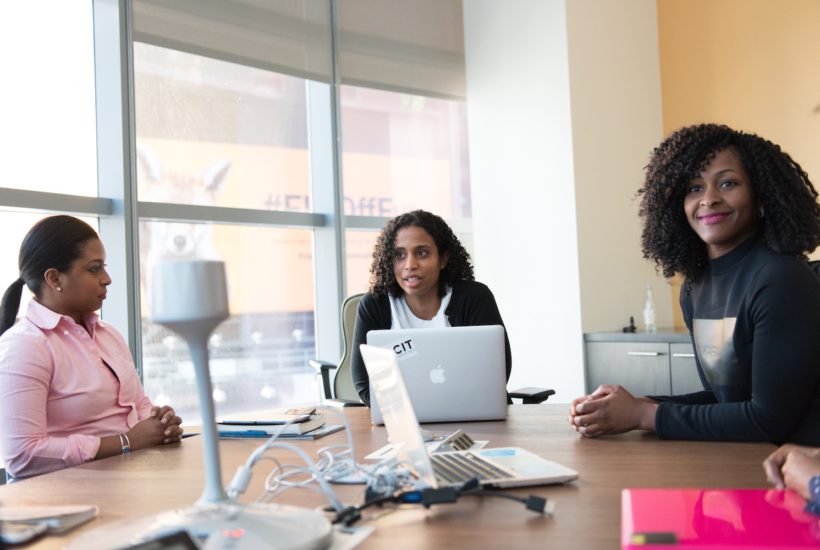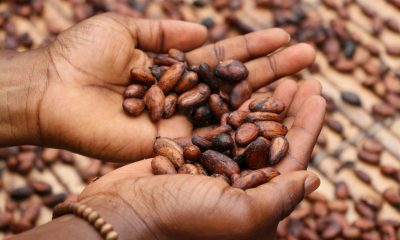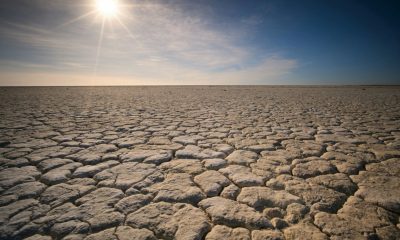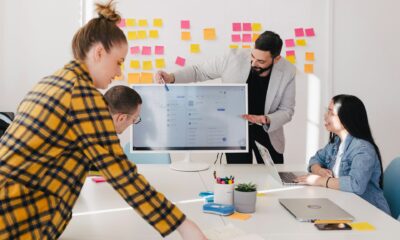Africa
How gender equality could boost Africa’s economy
The persistence of gender inequalities limits the potential of Africa. Millions of African women are still excluded from the economy. According to the current rate of progress, Africa needs more than 140 years to achieve gender equality. The majority of African women hold low-paying jobs in the informal sector and have neither the education nor the opportunities to progress.

One of the keys to unlocking economic opportunities for women is to guarantee them access to finance. Several initiatives are being launched in this regard. Although women represent more than 50% of the African continent’s population, they accounted for only 33% of its GDP in 2018.
This is what led Rwanda, one of the leading African countries in terms of gender equality, and the African Development Bank to organize the World Summit on Gender Equality in Kigali every year for the past four years.
While Africa is currently one of the most dynamic economies in the world, the persistence of gender inequalities still limits its potential. No one is saying that progress is not made, as there are of course more and more successful women present at the summit. Moreover, progress in gender equality obviously varies across regions and countries. However, millions of African women are still excluded from economic sectors.
Many publications do not cover the latest business headlines about European or African markets. Born2Invest has made a selection of these important stories a key part of its mission. Our companion app helps you keep up to date on the latest news about finance, markets, cannabis, fintech, and Africa.
Measuring progress
At the current rate of progress, it would take Africa more than 140 years to achieve gender equality, according to the latest report by McKinsey Global Institute. The report revealed that the continent could add $316 billion to its GDP, a 10% increase by 2025, if each state could match the progress made by the best countries in the region.
Unfortunately, the study is indicating that, at the current rate, it may take Africa more than 140 years to achieve gender equality. This is despite the fact that the participation rate of African women is higher than the world average. Indeed, most of them have low-paying jobs in the informal sector and have neither the education nor the opportunities to progress.
Beyond this bleak picture, however, the good news is not far off. To highlight them, McKinsey used a measure of progress inequality, the MGI gender parity score or GPS. Africa’s GPS for 2019 is the same as four years earlier.
In Africa, the only indicators on which progress has been made are legal protection and political representation. All other indicators remained the same or even declined in some countries.
South Africa has the highest GPS at 0.76, indicating average gender inequality. Mauritania, Mali, and Niger have the lowest scores, respectively 0.46, 0.46 and 0.45 (extremely high inequality). “For example, Rwanda and South Africa have increased the representation of women in middle management positions by 27% and 15%, respectively.”
“Algeria has reduced maternal mortality rates by about 9%. Egypt has tripled its score and Guinea and Liberia has doubled their scores on legal protection for women,” to quote the McKinsey report.
__
(Featured image by Christina @ wocintechchat.com via Unsplash)
DISCLAIMER: This article was written by a third party contributor and does not reflect the opinion of Born2Invest, its management, staff or its associates. Please review our disclaimer for more information.
This article may include forward-looking statements. These forward-looking statements generally are identified by the words “believe,” “project,” “estimate,” “become,” “plan,” “will,” and similar expressions. These forward-looking statements involve known and unknown risks as well as uncertainties, including those discussed in the following cautionary statements and elsewhere in this article and on this site. Although the Company may believe that its expectations are based on reasonable assumptions, the actual results that the Company may achieve may differ materially from any forward-looking statements, which reflect the opinions of the management of the Company only as of the date hereof. Additionally, please make sure to read these important disclosures.
First published in LePoint, a third-party contributor translated and adapted the article from the original. In case of discrepancy, the original will prevail.
Although we made reasonable efforts to provide accurate translations, some parts may be incorrect. Born2Invest assumes no responsibility for errors, omissions or ambiguities in the translations provided on this website. Any person or entity relying on translated content does so at their own risk. Born2Invest is not responsible for losses caused by such reliance on the accuracy or reliability of translated information. If you wish to report an error or inaccuracy in the translation, we encourage you to contact us.

-

 Biotech2 weeks ago
Biotech2 weeks agoTwogee Biotech Advances Industrial Enzyme Solutions for Circular Production
-

 Crypto3 days ago
Crypto3 days agoUniswap and BlackRock Partner to Launch BUIDL in DeFi
-

 Cannabis1 week ago
Cannabis1 week agoScientifically Verified F1 Hybrids Set New Benchmark for Indoor Cannabis Yield and Consistency
-

 Fintech6 days ago
Fintech6 days agoImpacta VC Backs Quipu to Expand AI-Driven Credit Access in Latin America

























